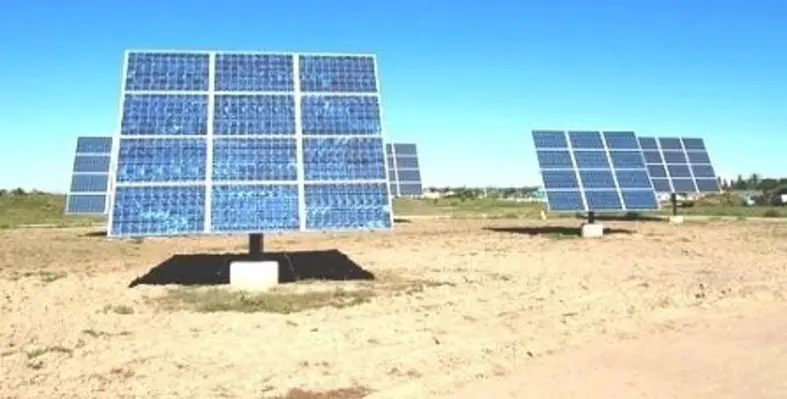Libya could generate approximately five times the amount of energy from solar power than it currently produces in crude oil, according to research carried out by Nottingham Trent University
The study led by the university’s School of Architecture, Design and the Built Environment found that Libya could generate enough renewable power to meet its own demand and a “significant part of the world energy demand by exporting electricity”.
Located on the cancer orbit line, Libya is exposed to the sun’s rays throughout the year, with long hours during the day. It has an average daily solar radiation rate of about 7.1kW hours per square metres per day (kWh/m²/day) on a flat plane on the coast and 8.1kWh/m²/day in its southern regions.
If the North African country used 0.1 per cent of its landmass to harness solar power, it could produce the equivalent to almost seven million barrels of crude oil per day in energy, the study found. Currently, Libya produces about 1.41mn barrels of crude oil per day.
Researcher Amin Al-Habaibeh said, “Although Libya is rich in renewable energy resources, it is in urgent need of a more comprehensive energy strategy. It is difficult to break the dependency on oil and natural gas, not just in terms of the country’s demand for it, but also in terms of the revenues that it generates.
“Renewable energy technology is still in its early days in Libya and a clear strategy and timetable is needed to take it forward. In particular, work needs to be done to develop the skills and knowledge needed to install and maintain renewable energy systems.”
The study also found that Libya has the potential to generate significant amounts of wind power, as the country is exposed to dry, hot and prolonged gusts.
Nottingham Trent University PhD student Ahmed Mohamed, who is himself Libyan, said, “Wind energy could play an important role in the future in meeting the total electric energy demand.
“Several locations, including a number along the coast, experience high wind speeds which last for long periods of time. If Libya could harness only a tiny fraction of the renewable energy resources it has available in the form of solar and wind power, not only could it meet its own demands for energy, but also a significant part of the world’s demands by exporting electricity.”












